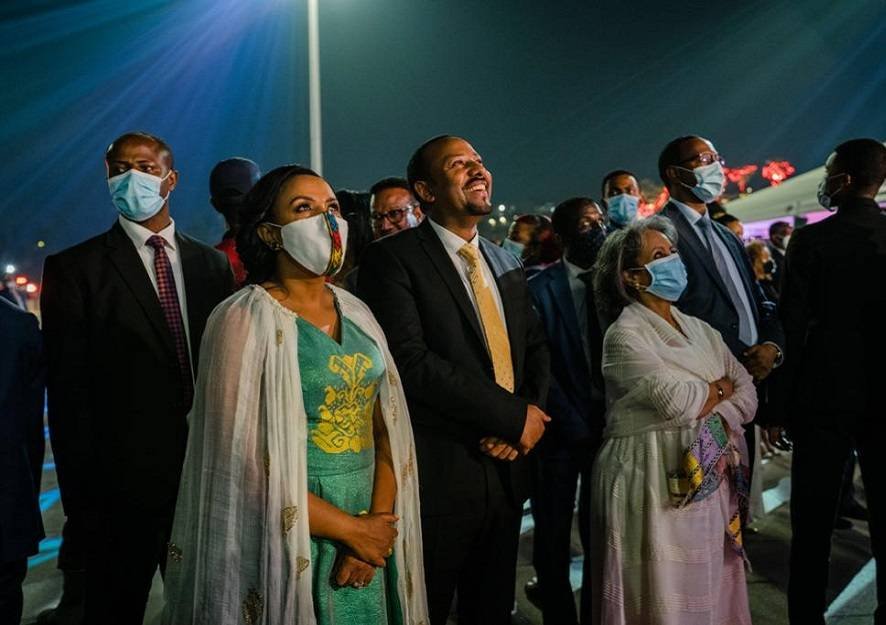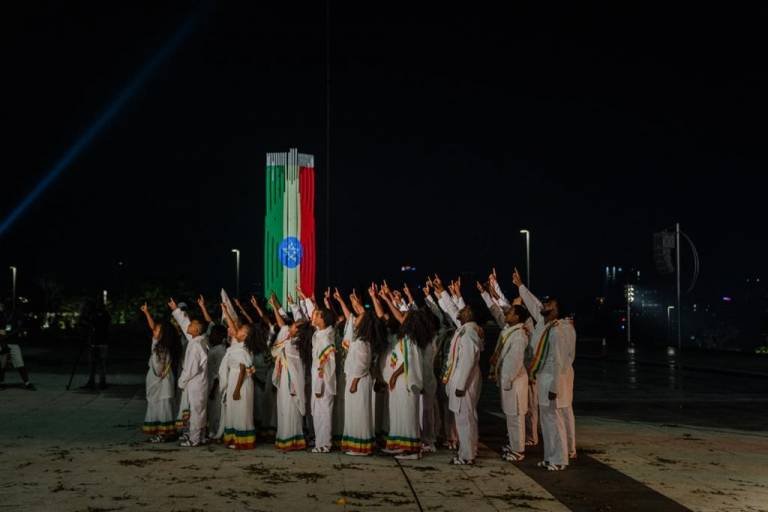Yesterday, September 11, 2020, which is few months away from 2021 as an ascribed calendar routine, but in the case of the Ethiopians, they have just entered the year 2013 as they celebrate their New Year. Having a unique calendar which is seven to eight years lagging from the rest of the world, large celebrations are being held across the East African country to mark the New Year.
During a New Year Eve celebration on Thursday evening, Prime Minister Abiy Ahmed said Ethiopians were hopeful for a better year. This year’s celebrations come amid the coronavirus pandemic in which almost a thousand fatalities have been recorded in the country.
The AP reports that on Friday, people prayed and sang at Bole Medhane Alem Church in the nation’s capital, Addis Ababa. Others were seen at open-air markets shopping for items to celebrate with their family and friends.

The last two years’ celebrations were very unique as they came on the back of the historic signing of a peace deal between Ethiopia and Eritrea. The leaders of both countries marked the day at their common border as they reopened the crossing points on their shared border for the first time in 20 years. This followed two decades of hostilities between the two countries.
It is important to decipher the rationale behind Ethiopia’s calendar about eight years behind the conventional calendar, the Horn of Africa nation follows a calendar similar to the ancient Julian calendar, which started disappearing from the West in the 16th century. The world has however adopted the Gregorian calendar, a calendar constituting 365 days in a year and 366 days in a leap year.
Nonetheless, Ethiopia uses the Coptic Calendar, which puts it years behind the rest of the world. The difference in year numbering is believed to be significant to the Ethiopian Orthodox Church disagreement with the Roman Catholic Church about when Christ was born.
Thus, in contrast to the Gregorian calendar, which is factored in the calculation of the year in which Jesus was born, the Ethiopian Church adopted a calendar tied to the calculation of the Annunciation (Jesus’s conception, not birth) arrived at by Egyptian monk-historian Annianus of Alexandria.

Mathematically, a year in the Ethiopian calendar is 13 months long, with 12 months of 30 days each. The last month has five days in a common year and six days during a leap year.
As in the Julian calendar, a leap year in the Ethiopian calendar happens every four years without exception. While most Christians celebrate Christmas on December 25, Ethiopians celebrate Christmas on January 7 with many Orthodox Christian churches around the world.
“…Because of the adaptation of the Coptic Calendar, the country of Ethiopia celebrates New Year on September 11th! This is because the Ethiopian Calendar, as stated above, follows the Coptic Calendar which was fixed to the Julian Calendar in 25 BC by Emperor Augustus of Rome with a start date of 29 August, thus establishing the New Year on this day.
“Here, September 11th is in accordance with the Gregorian Calendar; in other words, it is September 11th for the world except Ethiopia, where it is August 29, the New year,” explained in an article on Mind Blowing Facts.

